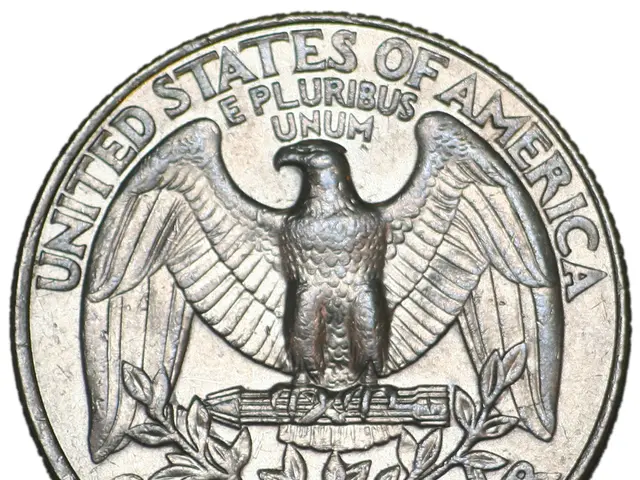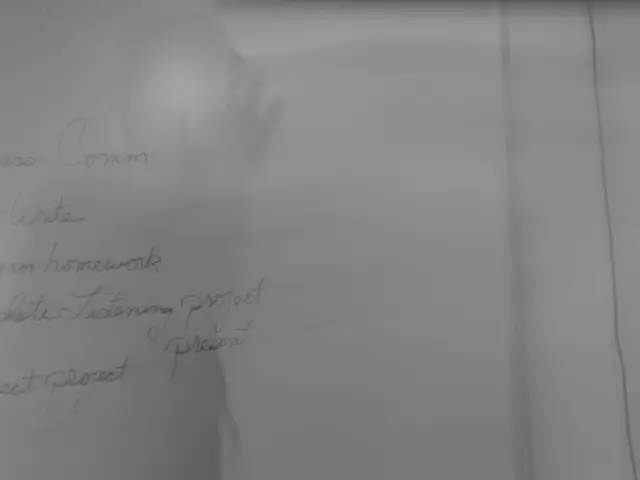Revived classic humor emerges anew
In an unexpected turn of events, German cinema is set to witness a resurgence of parody films, with several notable projects announced for the coming years. Stefan Raab, a beloved figure in German entertainment, will host the Eurovision Song Contest in 2025, marking his return to the spotlight after years of retirement.
One of the most anticipated projects is the sequel to "The Shoe of Manitu" (1997), titled "Manitu's Canoe", announced by Bully Herbig at the beginning of 2024. This film will continue the comedic adventure, but with a twist - addressing the homosexuality that was always unsaid in the original Karl May stories, through the characters Abahachi and his gay twin brother Winnetouch.
Bully Herbig, known for his humorous take on popular culture, expressed concern about campy gay stereotypes in the film and the potential for offense to certain groups. However, he views the decision to make another "Schuh des Manitu" film as a liberating move.
Parody in German Cinema: A Historical Perspective
German cinema's engagement with parody is rooted in its unique historical context, often intertwined with satire, political commentary, and complex historical contexts. German parody often emerges from satirical black comedies or films with strong political undertones, reflecting Germany’s unique historical experience, especially regarding WWII and Nazism.
Historically, German film comedy had a presence in studios such as Ufa, although it rarely specialized in the broad spoof or parody style found elsewhere. Instead, German films often combined comic elements with expressionist or politically infused storytelling rather than straightforward spoofs.
German cinema’s parody traditions are also linked to its artistic and political cinema history of the 1970s and 1980s (e.g., Fassbinder, Wenders). This era’s films did not focus on light-hearted spoof but involved self-referential, intertextual cinema that could include serious and ironic engagement with popular genres and Hollywood classics, reflecting a more somber post-1968 socio-political outlook.
Comparison with the United States and UK
In contrast, parody films in the United States have been a major commercial genre for decades, marked by influential creators like Mel Brooks and spoof classics such as "Blazing Saddles" and "Young Frankenstein". These films balance affectionate homage with broad, farcical humor and have a strong tradition of rapid-fire gags and irreverence.
American spoofs like "Airplane!" are notable for their deadpan delivery and relentless joke density, shaping spoof cinema into a distinct, often purely comedic subgenre that inspires imitators worldwide.
The UK has a rich comedy tradition that includes satire and parody, with works like those by Monty Python blending absurdism, parody, and sharp social commentary; the UK’s approach frequently uses parody to critique social and political norms through witty, layered humor, often with a surreal edge.
Key Differences
| Aspect | German Cinema | US Cinema | UK Cinema | |-----------------------------|-------------------------------------|-------------------------------------------------|--------------------------------------------| | Nature of Parody | Mostly satirical black comedy; historical/political reflection | Broad, gag-heavy spoof comedies; madcap musical revues and deadpan delivery | Satirical, absurdist, socially/politically critical parody | | Historical Context | Strongly shaped by WWII, Nazism, and political history | Influenced by Hollywood genres, commercial spoof markets | Influenced by British societal norms and political satire tradition | | Notable Examples | "Look Who’s Back" (2015) | "Blazing Saddles" (Mel Brooks), "Airplane!" | Monty Python films | | Tone and Style | Reflective, often dark, and critical | Farcical, irreverent, fast-paced comedy | Witty, layered, and often surreal humor |
A New Wave of Parody in German Cinema
The world situation has become darker in the last five years, according to comedy expert Rainer Dick. In this context, the decision to make another "Schuh des Manitu" film can be seen as a response to the need for laughter as a form of healing.
Rainer Dick also points out that parody films convey a sense of community and familiarity to the audience, making them a comforting escape in challenging times. Despite the challenges in making comedy, Bully Herbig's statement about not making the Karl May film parody the same way today reflects this trend.
Another notable parody film in German cinema is "(T)raumschiff Surprise - Periode 1", a parody of the "Starship Enterprise" TV adventures, released in 2004 by Bully Herbig. "Der Wixxer", a parody of the Edgar Wallace film adaptations of the 1960s, was also released in 2004 and featured Oliver Kalkofe and Bastian Pastewka.
In addition to these, a trend of nostalgia in humor is emerging, with soft toys known as Labubu becoming popular in 2025, originating from China.
As Germany prepares for Friedrich Merz as its Federal Chancellor in 2025, the resurgence of parody in German cinema offers a unique perspective on the country's humor and its evolving relationship with its past.
Finance and technology may play a role in the production and distribution of the upcoming parody films in German cinema, such as "Manitu's Canoe" and "(T)raumschiff Surprise - Periode 1". These films require funding and marketing strategies that could leverage digital platforms and social media to capture a wider audience.
On the other hand, lifestyle choices and entertainment preferences may impact the success of these parody films. Audiences' tastes and expectations have changed over time, and German cinema will need to cater to contemporary sensibilities while maintaining its unique humor and historical context.





